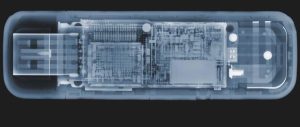The more you know!
Does a USB drive get heavier as you store more files on it?
Believe it or not, they get lighter. USB drives use Flash memory, which means the the ones and zeros of your data are stored on transistors. When you save data, a binary zero is set by charging the float gate of the transistor, and a binary one is set by removing the charge. To charge it, we add electrons, and the mass of each electron is 0.00000000000000000000000000091 grams. This means that an empty USB drive (which mostly holds zeros) weighs more than a full USB drive (which has ones and zeros). Add data, reduce the weight. However, you would need to weigh more USB drives than exist on the planet together at once before the difference in weight became easily measurable.
Believe it or not, they get lighter. USB drives use Flash memory, which means the the ones and zeros of your data are stored on transistors. When you save data, a binary zero is set by charging the float gate of the transistor, and a binary one is set by removing the charge. To charge it, we add electrons, and the mass of each electron is 0.00000000000000000000000000091 grams. This means that an empty USB drive (which mostly holds zeros) weighs more than a full USB drive (which has ones and zeros). Add data, reduce the weight. However, you would need to weigh more USB drives than exist on the planet together at once before the difference in weight became easily measurable.
(source: Dr. Peter Bentley, sciencefocus.com — https://www.sciencefocus.com/…/does-a-usb-drive-get…/…)

